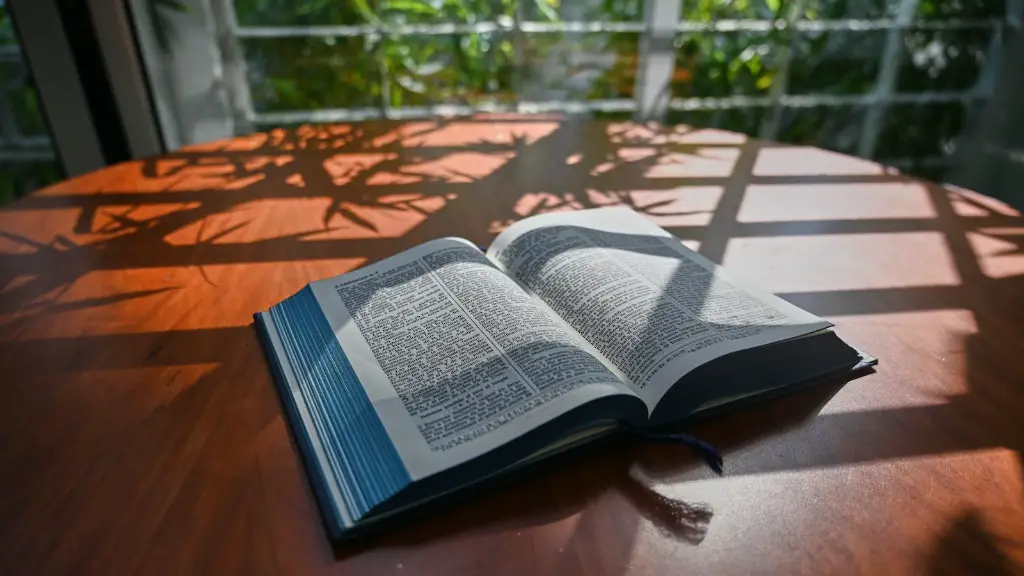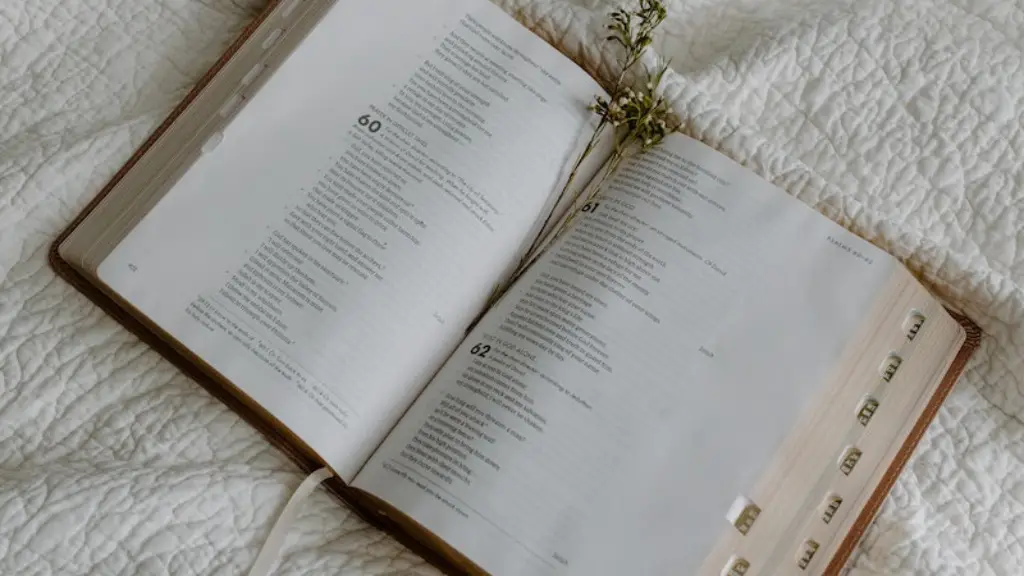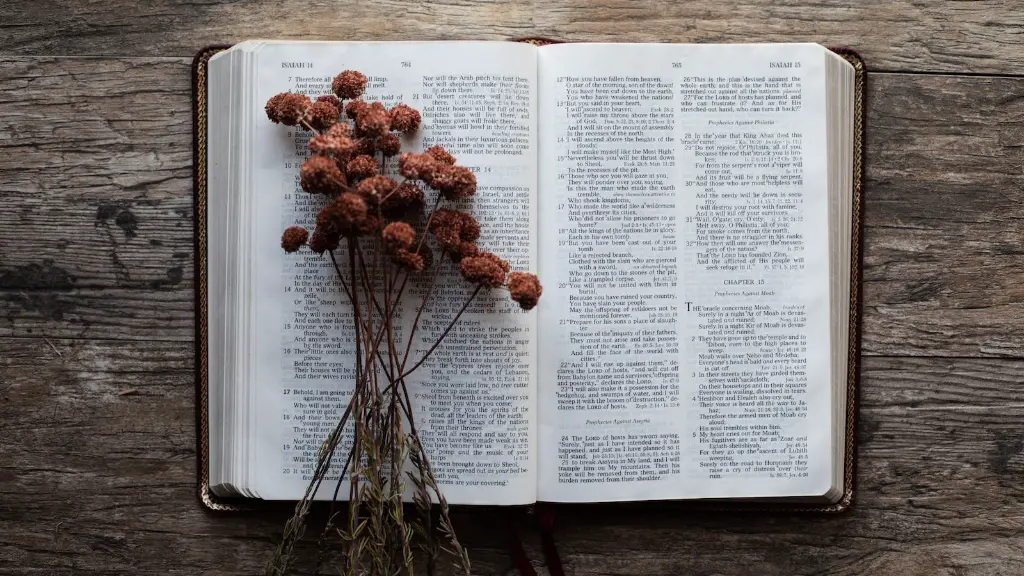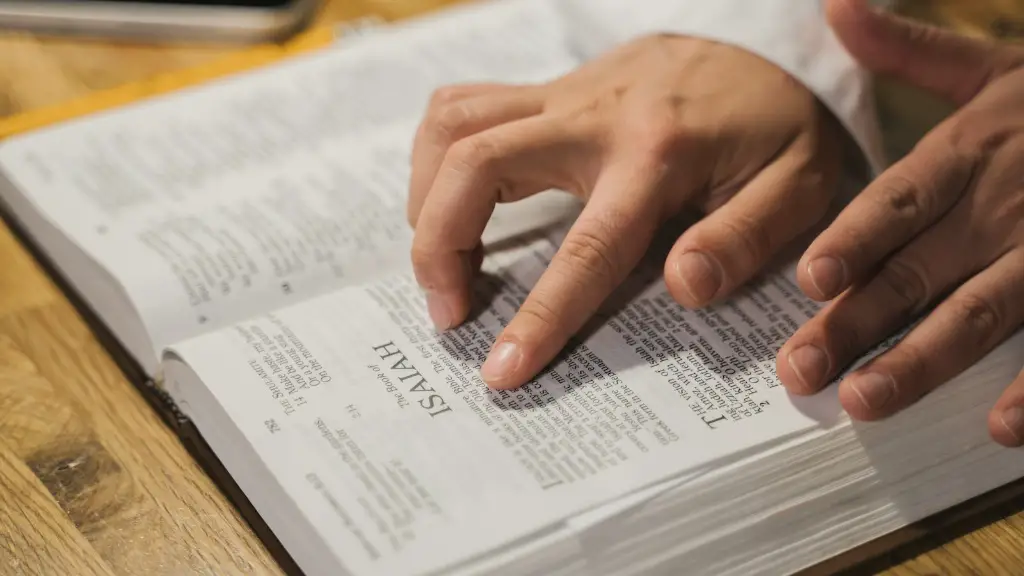Introduction
Cremation is a centuries-old burial rite still prevalent across many cultures, religions and countries, including the United States, India, China and Japan. Despite the practice being widely accepted today, it is not often mentioned in the Bible, and when it does appear, it usually has negative connotations. This article will explore the references to cremation in the Bible and their interpretations, as well as examining how modern cremation is carried out, and perspectives from different faiths on the practice.
The Bible
The Bible is a religious document often describing the customs, laws and outlooks of the time in which it was written. The Old Testament is seen as containing passages referring to the practice of cremation, though none directly mention the practice by name. For instance, the book of Amos includes a condemnation of those who destroyed bodies through fire, saying that “they have even burned the bones of the dead” (Amos 6:10). One understanding of this is that it is actually a condemnation of the cremation of bodies.
On the other hand, the book of Isaiah is usually seen as containing a reference to cremation that is much more favourable and welcoming: “And their bones shall be as embers of fire, and their life shall be like breathing coals in the grave” (Isaiah 66:15). Various interpretations have been drawn from this verse, some seeing it as an acceptance of cremation practices while others take it to mean an entirely metaphorical reference to being human.
Modern Cremation
Modern cremation is a relatively new practice in comparison, though one that has quickly become popular around the world. Before a cremation can go ahead, the person responsible for organising it (often a family member) must obtain the necessary forms and permits from the relevant authorities, usually a funeral director.
The body is then placed in a container designed to be cremated, a “casket”, and placed in a high temperature chamber that burns it down to its basic elements. The ashes can then be kept in an urn and buried, kept for remembrance or even scattered across a favourite spot.
The major difference from traditional burials is that cremation is almost always a much simpler and speedier process, with no need to worry about the ground, stones or flowers. It can also be significantly cheaper, depending on the area where the cremation is performed.
Perspectives On Cremation
How faith groups view cremation can vary, but it is becoming increasingly accepted across a number of denominations and religions. Catholic doctrine is highly sceptical of cremation and believes that if it is to take place, the cremated body should be interred in a single burial plot with a gravestone. This view has softened somewhat in recent years though, with the Vatican officially recognising cremation as an acceptable practice in 2016.
The views of other faith groups on cremation vary. Generally, Jewish, Hindu and Buddhist traditions recognise cremation, though there may be some limitations depending on the individual’s particular faith. Meanwhile, Islamic and Orthodox Christian faiths have traditionally rejected the practice and have instead viewed burial as the only acceptable means of disposing of a deceased individual.
Environmental Benefits Of Cremation
While there are many cultural and spiritual arguments for and against the practice of cremation, there are also a number of environmental factors to consider. As a general practice, cremation is considered to be much more eco-friendly than a traditional burial due to the very quick breakdown of the body, and the reduced burden on land use and cemeteries. There are also advances in modern crematoriums that render them almost emission-free, in comparison to their predecessors.
Additionally, cremation can be seen as a positive alternative to burials as it allows individuals to be scattered or otherwise disposed of in a more personalised manner. This can reduce the burden on loved ones who would otherwise have to arrange a burial, something that is not only difficult as an emotional process, but can also be prohibitively expensive.
Impact Of Cremation On Grieving
Beyond the physical act of disposing of a body, cremation can also be beneficial in terms of grieving and healing. As an accelerated burial method, it can provide bereaved individuals with a quick and personal way to say goodbye to their loved one, whether through the private scattering of the ashes or an organised event at the crematorium. This can offer a sense of closure that can be difficult to achieve through traditional burials.
Many crematoriums are beginning to offer a personalised twist to at-home memorial services, with small amount of ashes scattered in a personalised urn, or even as a part of a biodegradable “memory tree” that can be placed in a loved one’s garden.
Social Trends Regarding Cremation
Sociologically, the practice of cremation has been on the rise for the last few decades and is continuing to grow, largely due to its cost, versatility and environmental benefits. In 2019, nearly 70% of all deceased individuals in the UK were cremated, compared to 55% in 2000. In the United States, the number of cremations has risen steadily over the last 20 years and is expected to overtake burial as the most popular form of funeral service by 2025.
Other social elements such as changes in family size and the increasing availability of land has also had some influence, though cost remains the main driving force behind cremations. The average cremation in the UK is around £800 compared to the £4000+ cost of a traditional burial, making it an attractive option for many.
Cremation Memorials
Cremation also has a wealth of options for memorials and remembrances. Some crematoriums offer a host of tribute services, from simple plaque inscriptions to memorial gardens and much more. Some even offer customised tributes such as glass plaques, 3D statues and other keepsakes. All of these offer the bereaved a visual and personalised way to remember their loved one, even if the original body is no longer present.
Cremation memorials are becoming increasingly popular in the West, and have been a part of Asian cultures for centuries. Modern cremation services have turned it into a more creative, personal and special experience, allowing families to say goodbye to their loved one in a truly unique way.
Impacts On Religious Practices And Beliefs
Despite the fact that cremation is slowly gaining acceptance among various religious faiths, the effects on traditional beliefs vary. Generally, the attitudes of religious leaders have softened in recent years, though the underlying acceptance of the practice remains somewhat up in the air. In Islam and Orthodox Christianity, for instance, there are still clear issues with the idea of cremating remains, believing it to be a violation of God’s will. However, some modern interpretations of the religious texts have sought to contextualise and even accept the practice.
It is clear that the views on cremation vary widely across different religious and faith groups and that opinions are likely to keep changing. As more religious communities become more familiar with cremation services, our attitude to death, funerals and memorials is likely to shift as well.
Innovations
As the practice of cremation continues to become more accepted and more widely adopted, there are an increasing number of innovations that are being developed. In recent years, there have been a number of technological advances, such as using live streaming to enable distant relatives or family members to attend a service. In addition, AI and virtual reality are being used to create realistic memorials that allow loved ones to create a digital replica of the deceased.
Then there are memorials that can bring a physical touch back to the process. Customised keepsakes such as urns embedded with LED lights or customised memorial trees, they offer an eye-catching and beautiful way of remembering a loved one. It may also be possible in the future to have an entire memorial service or funeral virtually, allowing those unable to attend to still be able to be part of the ceremony.
Misconceptions
Despite the many benefits of cremation, there are still a number of misconceptions that people have about the process. One of the most common is that it destroys the integrity of the body, when in fact it simply returns it to its basic elements and leaves no trace of the person. Furthermore, contrary to many people’s beliefs, the ashes from a cremation can be used to scatter, inter or bury the remains, offering bereaved families a range of options at a much reduced cost.
In addition, some people may assume that cremation is a hurried process, when in fact it is generally a very sensitive and respectable ceremony. Most crematoriums offer families a chance to say their goodbyes and to handle the ashes in a dignified and private setting.
Conclusion
Cremation is a centuries-old burial rite still prevalent across many cultures, religions and countries and has been growing in popularity in recent years. Though it is not often mentioned in the Bible, references to the practice have been interpreted in various ways, and perspectives on the practice vary depending on faith. Regardless of one’s opinion, the environmental and cost benefits of cremation cannot be disregarded.
Cremation provides a personalised and accelerated burial method, and with modern innovations such as live streaming, AI and virtual reality memorials, it offers bereaved families the chance to remember their loved one in a truly unique way.





